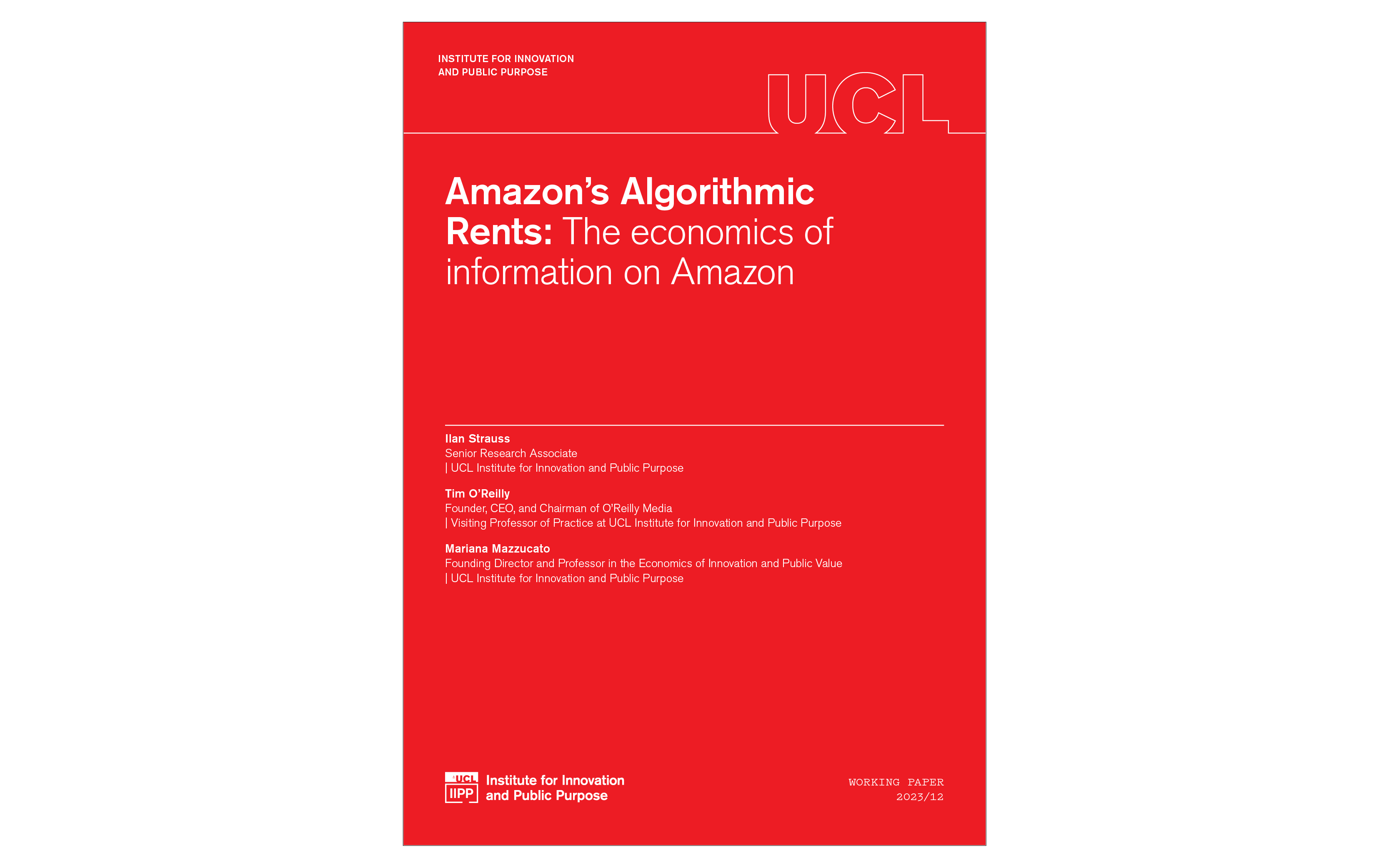Amazon’s Algorithmic Rents: The economics of information on Amazon
Authored by Dr Ilan Strauss, Tim O'Reilly and Professor Mariana Mazzucato

16 November 2023
UCL Institute for Innovation and Public Purpose (IIPP) Working Paper Series: IIPP WP 2023-12
Authors:
- Ilan Strauss | Senior Research Associate | UCL Institute for Innovation and Public Purpose (IIPP)
- Tim O’Reilly | Founder, CEO, and Chairman of O’Reilly Media | Visiting Professor of Practice at UCL Institute for Innovation and Public Purpose (IIPP)
- Mariana Mazzucato | Founding Director and Professor in the Economics of Innovation and Public Value | UCL Institute for Innovation and Public Purpose (IIPP)
Reference:
Strauss, I., O’Reilly, T. and Mazzucato, M. (2023). Amazon’s Algorithmic Rents: The economics of information on Amazon. UCL Institute for Innovation and Public Purpose, Working Paper Series (IIPP WP 2023-12). Available at: https://www.ucl.ac.uk/bartlett/public-purpose/wp2023-12
Abstract:
Amazon’s maturing e-commerce platform has seen its business strategy evolve from growth at any cost to a “quest for profit”, underpinned by its burgeoning $37.7bn advertising business. Through advertising, Amazon compels its captive third-party merchant ecosystem to pay for one of its most valuable assets – customer attention. Advertising leverages Amazon's unique position as a discovery platform. Discovery is governed by Amazon’s algorithms — the nerve centre of its conduct and a critical guide to market structure. Interrogating algorithmic allocations is not a routine part of market investigations, despite being the principal market institution and mechanism coordinating exchange online.
Prevailing doctrine assumes that platform rent extraction via algorithmic allocations to lower quality sponsored output cannot persist since “competition is just a click away”: optimizing users, with negligible search costs, will costlessly seek out higher quality algorithmic search and recommendation results.
We show that antitrust’s benchmark model of competition, premised on perfect information and consumer rationality, is unable to dissect platform power today, grounded in algorithms exploiting the highly uncertain and informationally abundant decision-making environment. Users, reliant on a platform’s algorithms for decision-making, may continue to click on inferior quality advertising information when prioritized by the platform. This allows Amazon to extract pecuniary rents from its ecosystem and impair fair competition by making product visibility conditional on payment.
We explore complementary antitrust and consumer protection paradigms for limiting a platform’s exploitation of its ecosystem through advertising. We focus on the relationship between the level of information and the level of competition in a market. Dominance is when a platform can disregard the full information content of its ecosystem and still profit.
 Close
Close

